We are proud to announce the general availability of the Oracle Analytics Server 2023 release. Oracle Analytics Server 2023 is a continued evolution of the Oracle Analytics platform. It adds significant, innovative capabilities that enhance the analytics experience of all user personas from business users, analysts, and business data scientists to data engineers and administrators.
Complete Analytics Platform
The Oracle Analytics platform provides the capabilities required to address the entire analytics process, including data ingestion and modeling, data preparation and enrichment, and visualization and collaboration without compromising security and governance. Embedded machine learning and natural language processing technologies help increase productivity by augmenting the analytic experience for all users in an organization. Oracle Analytics Server is a customer-managed deployment of the Oracle Analytics platform that can be customized by the organization. Oracle Analytics Server can be implemented either on-premises or on cloud infrastructure such as Oracle Cloud Infrastructure (OCI), Microsoft Azure or AWS . For OCI the deployment can be streamlined using an OCI Marketplace deployment – read more about OAS on OCI Marketplace. For Oracle Business Intelligence Enterprise Edition (OBIEE) customers that are inclined to continue to manage their own deployments, Oracle Analytics Server (OAS) is the path to a modern business intelligence (BI) and analytics experience.
Highlighted New Features
Parameters
Parameters is a powerful new feature that allows an analyst to create user-defined variables to store and manage reusable values within a workbook. An analyst can use parameters as filter controls, in a visualization’s properties, in logical SQL expressions, expression filters, calculations, and in data actions and workbook navigation.
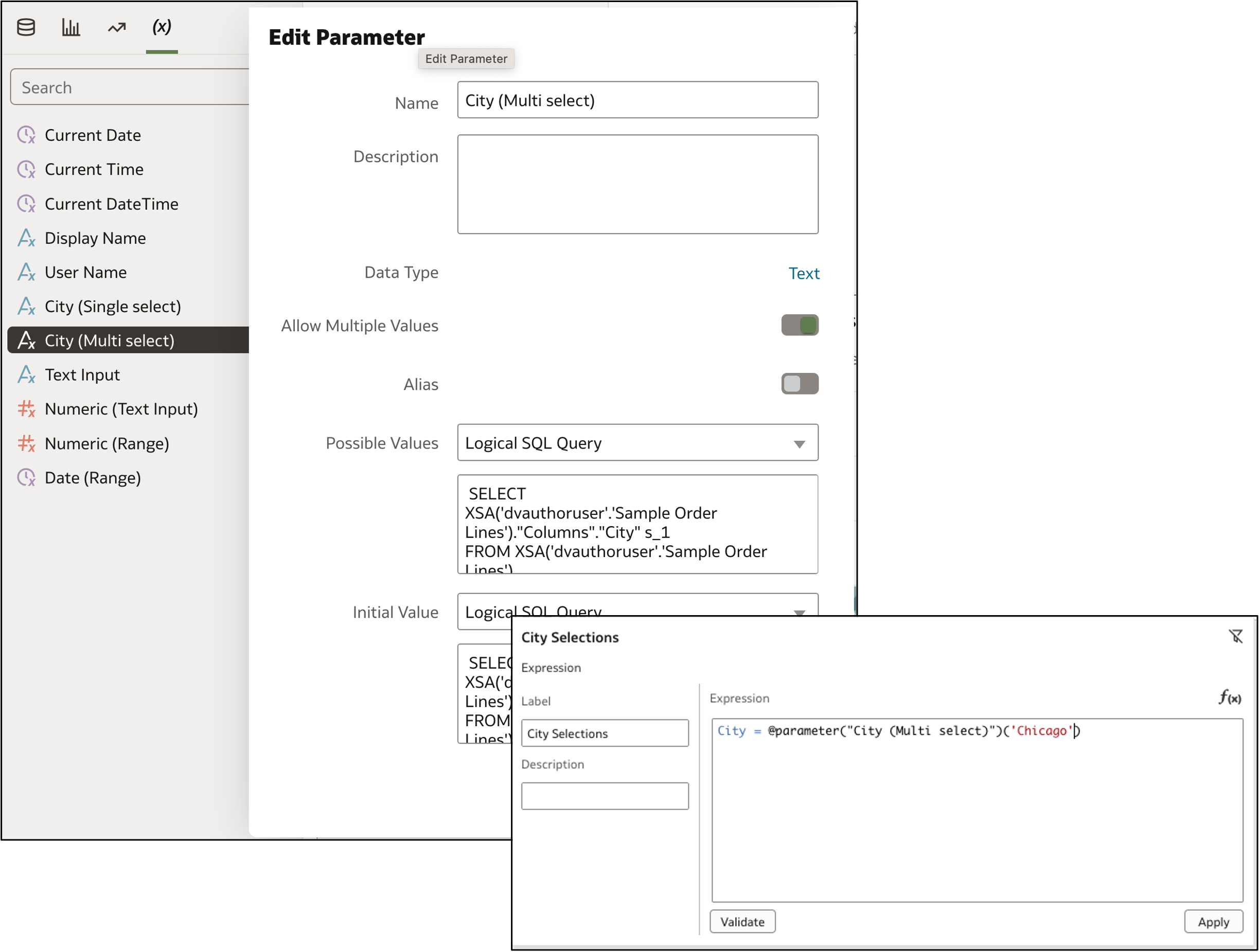
Enhanced authoring experience
There are several new capabilities that allow the workbook author to create more powerful and visually appealing content. New features include an improved tile visualization that allows for multiple metrics and better layout control, overlay charts for multilayer visualizations, finer control over consumer interactions, more capabilities for conditional formatting, a slider dashboard filter, ability to control bubble sizes on maps, improved experience for the grammar and property panels, ability to configure the grid spacing between visualizations on the canvas, and many others.
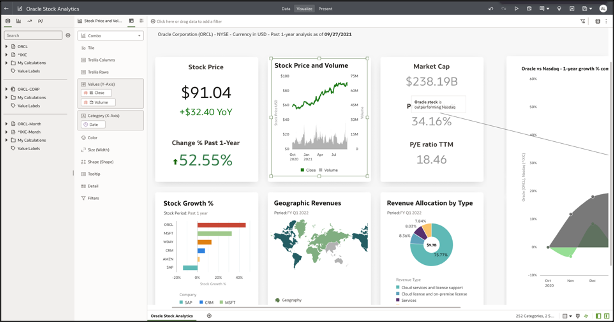
Multi-table datasets with files
For the data engineer, the ability to define datasets with multiple tables has been enhanced with the ability to add file data. When the user creates a new dataset, they can now add tables from relational sources, local subject areas, and files. Each new entity created in datasets can be based on any of these data sources. This enables the user to add multiple files to one dataset where each file becomes a table, and to define joins between tables within a dataset. Files from Google Drive and Dropbox are also supported.

New Oracle Cloud Infrastructure integrations
The business data scientist can now take advantage of the advanced analytic capabilities available in Oracle Cloud Infrastructure including Oracle Functions and Oracle Vision AI.
Oracle Functions integrations allow allows registration of an API call or custom script as a function. For example, if a user wants to execute a data flow that runs a custom Python script they can upload the script to OCI Function-as-a-Service (FaaS) and define a function for it. Oracle Analytics then natively consumes the function, directly invoking the FaaS function from within a data flow both safely and securely.
OCI Vision AI models can also be registered in Oracle Analytics Server and executed directly in data flows using user-supplied images. OCI Vision can perform object detection, image classification, and text recognition on the images and return the results directly as datasets in Oracle Analytics Server.
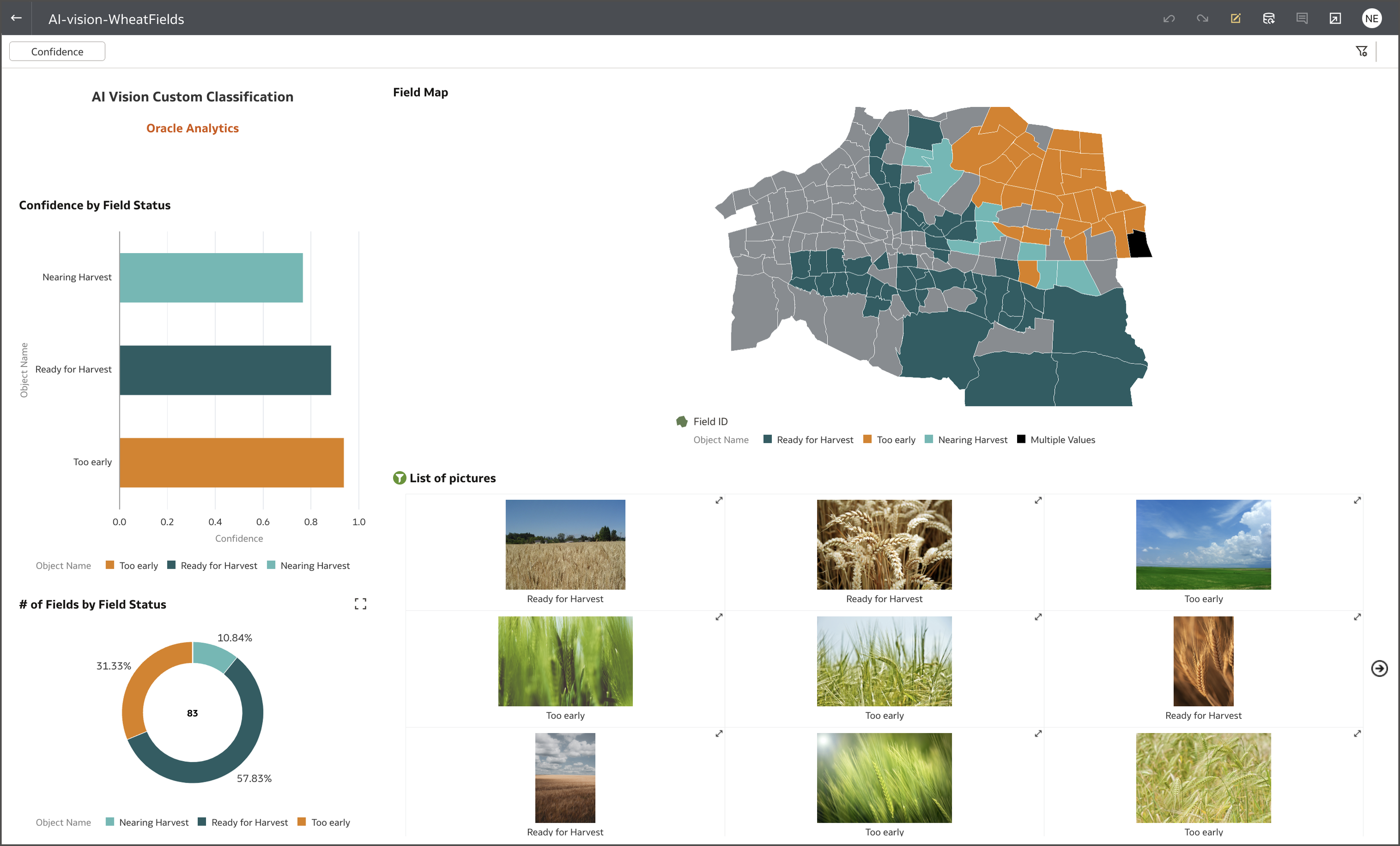
Enhanced Auto Insights
The ability for Oracle Analytics to automatically analyze datasets and provide insights has been enhanced. Greater rendering performance and additional insights such as metrics forecasting are now available. Auto Insights now recognizes latitude and longitude data types in any dataset, and automatically renders map visualizations as part of suggested insights.
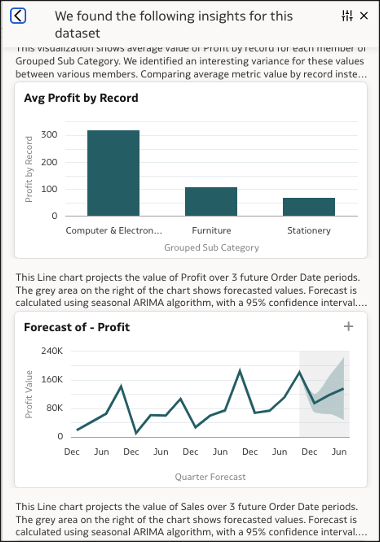
Updated Homepage
The redesigned homepage allows the user to easily customize the organization and display of content to suit their specific preferences. The result is a personalized landing page experience with improved navigation and increased ease of access to the most important content for each user.
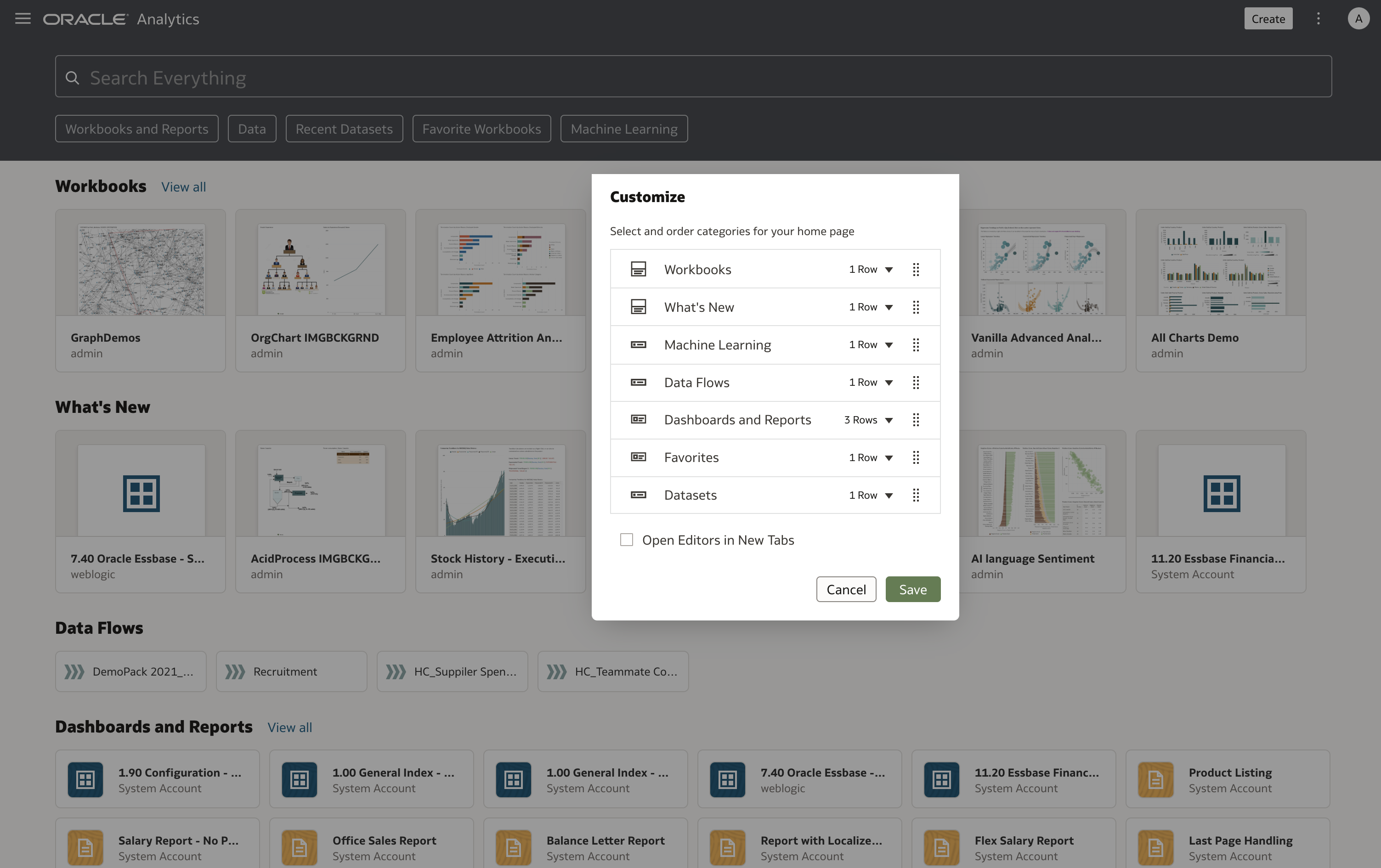
Content Management
Administrators can manage Oracle Analytics content from the console. For example, if an employee leaves an organization, the administrator might want to assign ownership of their workbooks and machine learning models to a different employee. The Content Management interface makes this task easy, preventing a loss of productivity.

Oracle Analytics Server 2023 is a continuation of Oracle’s commitment to deliver best-in-class analytics solutions for all customers, both those who operate on-premises and in the cloud.
For a complete list of features, please see What’s New for Oracle Analytics Server.
See more of the OAS 23 capabilities on the following YouTube playlists:
Oracle Analytics Server – Extending with AI & ML
Oracle Analytics Server – Accessing, enriching and modeling data
Oracle Analytics Server – Visualizing data
Learn More
Visit Oracle Analytics to learn more about the Oracle Analytics and various deployment options.
Visit Getting Starting with Oracle Analytics Server to learn more about Oracle Analytics Server.
